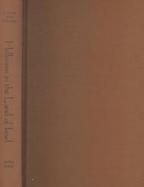Hellenism in the Land of Israel
- List Price: $45.00
- Binding: Hardcover
- Publisher: Univ of Notre Dame Pr
- Publish date: 10/01/2000
Martin Hengel opens the volume with a vigorous restatement of the thesis of his classic Judaism and Hellenism, which is revisited -- but not revised -- in light of new discoveries. John J. Collins probes the limits of Hellenization in Judea, taking the conflict culminating in the Maccabean revolt as a test case. Erich Gruen reviews Jewish attitudes to Greek culture. Robert Doran adds critical reflections in this area in his study of Jason's gymnasium. Jan Willem van Henten and Edgar Krentz analyze a specific illustration of the Hellenism of the Hasmoneans, the honorary decree for Simon Maccabee. Pieter van der Horst reviews the use of Greek language and Hellenistic conventions in Jewish inscriptions. His review is supplemented by James VanderKam's account of the Greek material in the Dead Sea Scrolls. Sean Freyne provides astudy of regional variety by examining the evidence for Galileans, Phoenicians, and Itureans in the Hellenistic and Roman periods. Shaye Cohen extends the chronological range of the volume into the rabbinic period by examining subtler forms of Hellenistic influence. Tessa Rajak explores Josephus' understanding of whom he considered barbarians, Greeks, and Jews. Gregory E. Sterling compares and contrasts the "Hellenistic Judaism" of Judea with that of Alexandria. Martin Goodman provides an epilogue reflecting on the basic issues raised in the volume.


